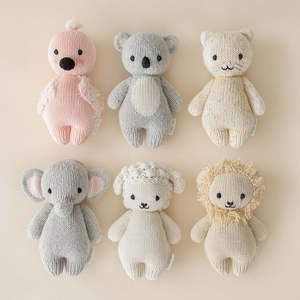Introduction to Small Toy Businesses
Small toy businesses play a vital role in today’s vibrant and competitive marketplace. These enterprises not only provide a diverse range of toys that entertain and educate children but also create unique products that reflect the creativity and innovation of their owners. With the growing consumer interest in personalized and handmade items, small toy businesses offer an authentic shopping experience that appeals to modern parents looking for distinctive, quality products.
Types of Small Toy Businesses
Small toy businesses come in various forms, each tailored to meet specific market demands and customer preferences. Here are some common types:
- Handmade Toy Crafts: Artisans create unique toys using natural materials, promoting sustainability and craftsmanship.
- Online Retailers: E-commerce platforms allow small entrepreneurs to reach a broader audience and sell toys directly to consumers worldwide.
- Local Toy Stores: Independently-owned shops that curate a selection of toys from various manufacturers, often focusing on educational or eco-friendly options.
- Subscription Boxes: Monthly deliveries of unique toys that surprise and delight children, fostering ongoing customer engagement.
Features and Advantages of Small Toy Businesses
Small toy businesses offer numerous features that set them apart from larger corporations. These advantages not only enhance the customer experience but also contribute to the growth of the business. Key features include:
- Customization: Many small toy businesses provide customization options, allowing customers to personalize toys to suit their child’s preferences.
- Quality Materials: Often using high-quality or organic materials, small toy creators take pride in their craftsmanship, ensuring that toys are safe and durable.
- Local Sourcing: These businesses frequently support local suppliers, positively impacting their communities and reducing their carbon footprint.
- Innovation: Small toy entrepreneurs tend to be more flexible and innovative, frequently introducing new designs and concepts in response to market trends.
- Community Engagement: Many small toy businesses actively participate in local events, strengthening community ties and enhancing brand loyalty.
How to Choose the Right Small Toy Business
Selecting the right small toy business to support or collaborate with can significantly impact your experience and satisfaction. Here are some tips to guide your decision:
- Research Values: Assess the company’s values and mission. Look for businesses that prioritize sustainability, quality, and ethical manufacturing practices.
- Review Product Range: Explore the variety of toys offered. A diverse selection often indicates a nuanced understanding of children’s developmental needs.
- Customer Reviews: Read testimonials and feedback from other customers. Positive reviews can give insight into product quality and customer service.
- Engagement with Customers: Choose businesses that interact with their customers through social media or events, as this often reflects a commitment to customer satisfaction.
- Trial Products: If possible, try out some products for quality. Many small toy businesses offer samples or demo products to facilitate this.




































 Ready to Ship
Ready to Ship




